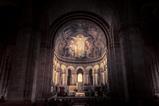Q: Many people assume that the birth narratives of Jesus found in the Gospels are fictional. Do you think they’re trustworthy?

In order to answer this question, it is useful to compare the Gospels with other historical documents. As an ancient historian, I study texts in which most of the incidents that we know about are recorded only once. This is the case in the works of Tacitus or Suetonius, or any of the other great ancient writers. Almost all of the texts from the ancient world exist as only one or two mediaeval manuscripts. The work of Lucretius, the great epicurean poet from the first century BC, was lost completely until a singular manuscript was discovered in 1417 by Poggio Bracciolini. That means that epicurean studies were revived with just one manuscript! Even Josephus, the great Jewish historian, often recorded historic events only once.
Amazingly, when it comes to the New Testament, we have copies of copies of copies – hundreds and thousands of manuscripts, all converging on the explosive event of the birth of Jesus. We have to recognise that this doesn’t happen by accident. As historians, we have a much more solid basis for the events recorded in the New Testament than other ancient texts – whether it’s Caesar and Cicero or Seneca or Suetonius.
Another criticism of the Gospel accounts is that the events recorded were written years after they took place, and that they are therefore subject to inaccuracy. Again, looking at this as a classical scholar, this kind of historical recording is very common. If we look at Josephus’ writings, some of these were written 20 to 30 years after the events (in some cases, even more than that) and yet historians recognise these as evidence.
As for the accusation that the Gospel writers had an agenda, all of history is written by people who have agendas. I tell my students there is no such thing as an epistemological Switzerland – a neutral ground from which you declare that you’re seeing everything clearly. David Hulme, the great sceptic from the 18th century, had a massive agenda, as did Edward Gibbon who wrote The Decline and Fall of the Roman Empire (Penguin Classics).
We can’t assume any historian – ancient or modern – is objective. But that doesn’t mean the events did not take place. This is what I call critical realism. The same applies when we read the Gospel writers’ accounts of the Christmas story and the life of Christ, which are corroborated by other historians of the era – for example, Josephus – who were not invested in the same way as the disciples were.
So, is the wonder of Christmas myth or history? I believe we have enough evidence to claim the latter. In our modern world, many of the most celebrated aspects of Christmas culture are not historically verifiable – for example, magical sub-narratives of Santa Claus, elves and flying reindeer, as delightful as they may be. But what if the most wondrous story – that the Word became flesh and stepped into the world he made, in order that it may be remade – is not only history, but the most historical moment of all time?
Tom answers listeners’ questions every week on the ‘Ask NT Wright Anything’ podcast.





































No comments yet